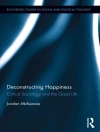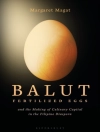Re-energising debates on the conceptualisation of diasporas in migration scholarship and in geography, this work stresses the important role that geographers can play in interrupting assumptions about the spaces and processes of diaspora. The intricate, material and complex ways in which those in diaspora contest, construct and perform identity, politics, development and place is explored throughout this book. The authors ‚dismantle‘ diasporas in order to re-theorise the concept through empirically grounded, cutting-edge global research. This innovative volume will appeal to an international and interdisciplinary audience in ethnic, migration and diaspora studies as it tackles comparative, multi-sited and multi-method research through compelling case studies in a variety of contexts spanning the Global North and South. The research in this book is guided by four interconnected themes: the ways in which diasporas are constructed and performed through identity, the body, everyday practice and place; how those in diaspora become politicised and how this leads to unities and disunities in relation to ‚here‘ and ‚there‘; the ways in which diasporas seek to connect and re-connect with their ‚homelands‘ and the consequences of this in terms of identity formation, employment and theorising who ‚counts‘ as a diaspora; and how those in diaspora engage with homeland development and the challenges this creates.
Anastasia Christou & Elizabeth Mavroudi
Dismantling Diasporas [EPUB ebook]
Rethinking the Geographies of Diasporic Identity, Connection and Development
Dismantling Diasporas [EPUB ebook]
Rethinking the Geographies of Diasporic Identity, Connection and Development
Dieses Ebook kaufen – und ein weitere GRATIS erhalten!
Sprache Englisch ● Format EPUB ● Seiten 222 ● ISBN 9781317149583 ● Verlag Taylor and Francis ● Erscheinungsjahr 2016 ● herunterladbar 3 mal ● Währung EUR ● ID 4859934 ● Kopierschutz Adobe DRM
erfordert DRM-fähige Lesetechnologie












